Week 37 of Your Pregnancy: Care Instructions
|
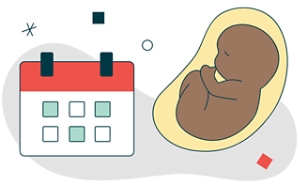
Most babies are born between 37 and 40 weeks.
|

This is a good time to pack a bag to take with you to the birth. Then it will be ready to go when you
are.
|
|
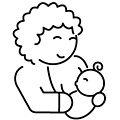
|
Learn about breastfeeding. For example, find out about ways to hold
your baby to make breastfeeding easier. And think about learning how to pump and store milk.
|
|

|
Know that crying is normal. It's common for babies to cry 1 to 3 hours
a day. Some cry more, and some cry less.
|
|
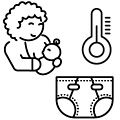
|
Learn why babies cry. They may be hungry; have gas; need a diaper
change; or feel cold, warm, tired, lonely, or tense. Sometimes they cry for unknown reasons.
|
|

|
Think about what will help you stay calm when your baby cries. Taking
slow, deep breaths can help. So can taking a break. It's okay to put your baby somewhere safe (like
their crib) and walk away for a few minutes.
|
|

|
Learn about safe sleep for your baby. Always put your baby to sleep on
their back. Place them alone in a crib or bassinet with a firm, flat surface. Keep soft items like
stuffed animals out of the crib.
|
|
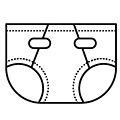
|
Learn what to expect with newborn poop. Your baby will have their own
bowel patterns. Some babies have several bowel movements a day. Some have fewer.
|
|
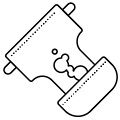
|
Know that breastfed babies will often have loose, yellow bowel movements.
Formula-fed babies have more formed stools. If your baby's poop looks like pellets, your baby is
constipated.
|
Follow-up care is a key part of your treatment and safety. Be sure to make and go to all
appointments, and call your doctor if you are having problems. It's also a good idea to know your test results
and keep a list of the medicines you take.
Current as of: July 10, 2023
Content Version: 14.0
Care instructions adapted under license by your
healthcare professional. If you have questions about a medical condition or this instruction, always ask
your healthcare professional. Healthwise, Incorporated disclaims any warranty or liability for your use of
this information.
© 2006-2024 Healthwise, Incorporated.